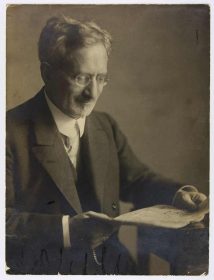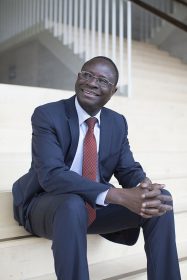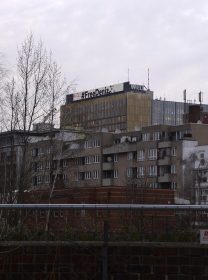The 1930 German Federal Election

Heinz Arzt reading the newspaper, 1920; Jewish Museum Berlin, gift of Hilde Pearton, née Bialostotzky
Recently I was leafing through the inventory listing of a family collection that has been in our archives for many years. I wanted to rework the index in order to bring it up to our current standards. The collection included documents, photographs, and objects from the Arzt and Bialostotzky families. In the twenty-three page inventory, a letter was listed for the Berlin liqueur manufacturer Heinz Arzt (1866–1931) in the category “correspondence,” but neither a sender nor recipient was listed, to say nothing of its contents. The extremely brief description went: “Letter: hand-written, 14 Sept. 1930.”
So I went into the archives and pulled the document numbered 2001/219/28 from box 451 to complete the listing. Suddenly, I was holding a fascinating piece of history in my hands: the so-called letter turned out to be a brief report on the Reichstag election eighty-seven years ago. → continue reading
A Conversation with Karamba Diaby

Karamba Diaby; photo: Michael Bader
The first black man in the German Parliament — that’s often how Karamba Diaby is introduced. In his book Mit Karamba in den Bundestag: Mein Weg vom Senegal ins deutsche Parlament (With Karamba to the Bundestag: My Journey from Senegal to the German Parliament) Diaby provides fascinating insight into his life, a story of many toppled prejudices.
On June 1, 2017 he will introduce his book as part of our series “New German Stories” and discuss his journey from Senegal to East Germany, his experiences after German reunification, casual racism, and not least the goals and visions he holds as a Member of Parliament. Sithara Weeratunga and Serpil Polat asked Karamba Diaby three questions in anticipation of the event: → continue reading

View from the Academy of the Jewish Museum Berlin towards the Springer building with the lit-up sign, #FreeDeniz; Jewish Museum Berlin, photo: Stefanie Haupt
As I leave my office at the Jewish Museum Berlin, emerging from the W. Michael Blumenthal Academy onto the street, the hashtag “#FreeDeniz” beams towards me from an illuminated black-on-turquoise-green display on the Axel Springer building. The first time I saw it, I was cheered by the signal that the publishing house Axel Springer SE* was calling for the release of Die Welt’s correspondent in Turkey, Deniz Yücel. But each day seeing the display has gotten sadder. I’ve known Deniz Yücel since 2003, when — together with other German- and Turkish-speaking Berliners — he organized bilingual protests against the bomb attacks on the two Istanbul synagogues, Neve Shalom and Beth Israel, on November 15 of that year. Twenty-four people were killed in those attacks and at least 300 wounded.
Deniz and I haven’t had contact for quite awhile. But since mid-February, through the news of his imprisonment for “terrorist propaganda” and the car procession protests that followed it, as well as conversations with friends and of course the illuminated sign, memories from the period in 2003 and 2004 when we interacted almost weekly having been coming back. → continue reading


